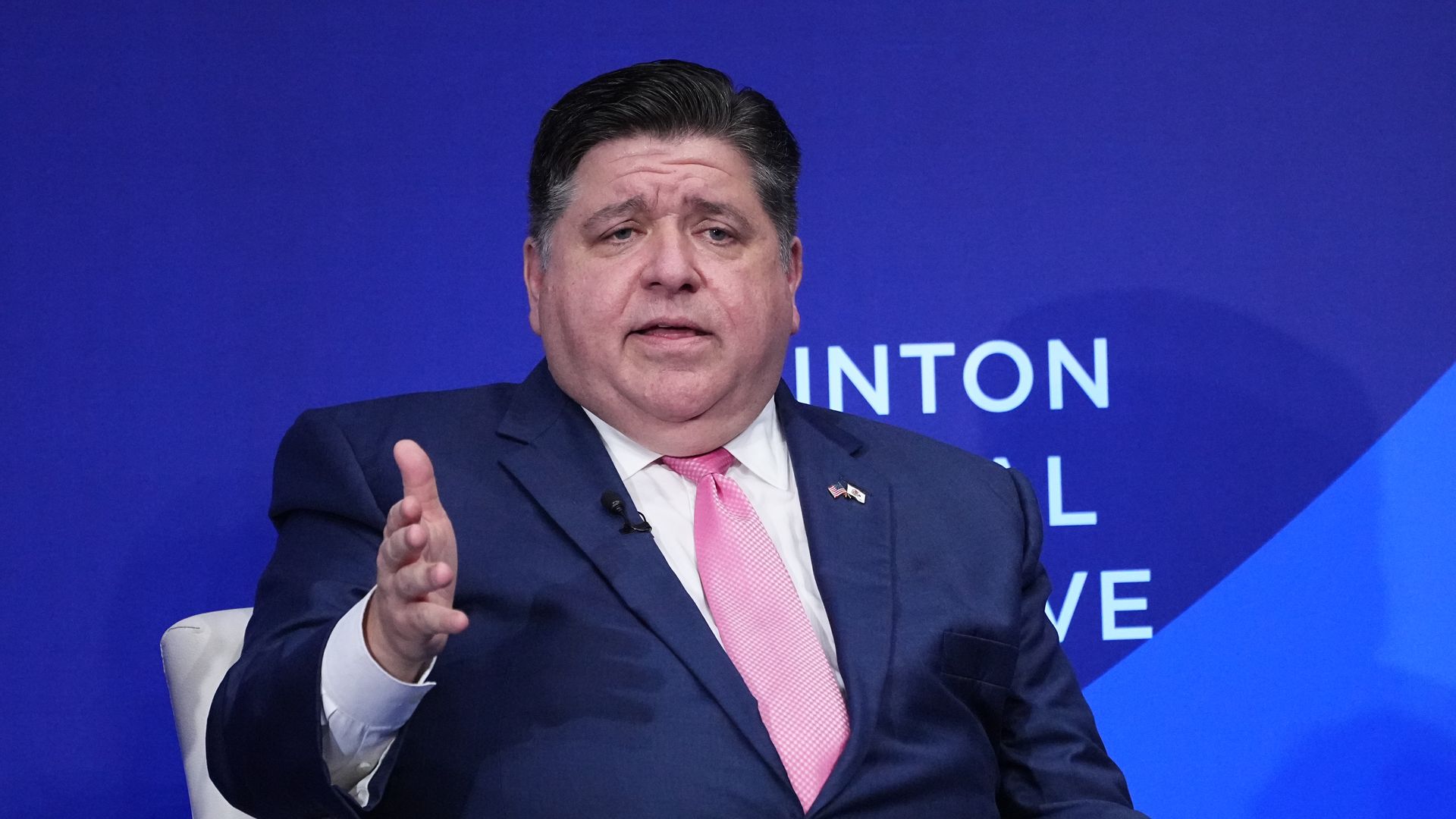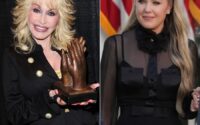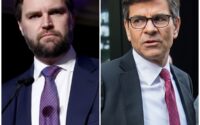Governor Pritzker Unleashes on President Trump, Blaming Him for the Rise in Political Violence Following Charlie Kirk’s Death. .m
In the aftermath of a national tragedy that has left the country reeling, a political firestorm of unprecedented scale has erupted, this time from the unlikeliest of sources: a sitting state governor. In a stunning and unfiltered rebuke that has ignited a furious debate, Illinois Governor J.B. Pritzker has publicly and directly blamed President Donald Trump for the dangerous rise in political violence that has come to define our current era. Less than 24 hours after the assassination of conservative activist Charlie Kirk, Pritzker’s comments have not only injected raw politics into a moment of shared grief but have also served as a powerful reminder of the profound chasm that exists at the heart of the American political landscape.

The governor’s words came at a time when the nation was still processing the full gravity of Kirk’s death. Pritzker, a Democrat with a national profile, began his statement with a formal acknowledgment of the tragedy, offering condolences to Kirk’s family. But the moment of solemnity was fleeting. In a swift pivot, Pritzker launched into a scathing indictment of the president, claiming that the violence now “ratcheting up” in the country is being actively fomented by people like Trump. It was a bold and audacious claim, delivered with the kind of certainty that only a politician in the middle of a high-stakes blame game can muster. Pritzker did not shy away from linking the violence directly to the president’s rhetoric, arguing that his words have created a climate where such acts are not only possible, but perhaps even inevitable.
The governor’s accusations were not limited to the present moment. He reached back into the recent past, citing the January 6, 2021, incursion at the Capitol, as a pivotal turning point in American history. In his view, the events of “that day tripped a new era of political violence,” a sentiment that has been widely echoed by the political left. By connecting Kirk’s death to the events of January 6, Pritzker was attempting to build a narrative of a long-standing pattern of political incitement, a pattern that, in his view, is being driven from the very top. This is a dangerous and highly charged accusation, one that has been met with immediate and furious backlash from conservatives who see it as a grotesque exploitation of a man’s death for political gain. “But I will say that political violence, unfortunately, has been ratcheting up in this country,” Pritzker added.
The debate that has erupted in the wake of Pritzker’s comments is not just about who is to blame for a single act of violence. It is about the very nature of political rhetoric in the 21st century. It is a debate about the lines between free speech and incitement, between passionate disagreement and outright hate. For Pritzker and his supporters, the language used by Trump and his allies is not just words; it is a match that is being struck in a tinderbox, and the assassination of Charlie Kirk is the tragic result. They argue that the repeated use of inflammatory language, the demonization of political opponents, and the calls for retribution have created a climate where the unthinkable can and does happen. “I would just say it’s got to stop, and I think there are people who are fomenting it in this country,” he continued. “I think the president’s rhetoric often foments it.” They see Kirk’s death not as an isolated incident, but as the inevitable consequence of a political strategy that relies on anger and division.
On the other side of the aisle, conservatives are condemning Pritzker’s comments as a cynical and opportunistic attempt to score political points in a moment of national mourning. They argue that it is the political left, with its constant accusations of “fascism,” “Nazism,” and “hate speech” against anyone who disagrees with them, that is truly fueling the violence. They point to the assassin’s alleged motives and the pro-transgender and pro-Antifa messages found on the rifle cartridges, arguing that the violence came from a specific ideological place, a place that is encouraged and celebrated by the very people now casting blame on the president. They see Pritzker’s comments not as a genuine expression of concern, but as a textbook example of political hypocrisy, a willingness to exploit a tragedy to advance a partisan agenda.
The public reaction to Pritzker’s comments has been a microcosm of the nation’s deep divisions. On social media, supporters have applauded the governor for his courage, for his willingness to say what they believe is the truth, no matter how difficult. They see him as a voice of moral clarity in a moment of moral ambiguity. But critics have condemned him as a “ghoul,” a man who is so consumed by his political hatred that he is willing to dance on the grave of a man who was just assassinated. They argue that his words are not healing, but are in fact further fueling the very divisions he claims to be against.
In the end, this is a story not just about Pritzker, or Trump, or even Charlie Kirk, called him “great, and even Legendary,” when confirming his passing on Truth Social. “No one understood or had the Heart of the Youth in the United States of America better than Charlie,” the commander-in-chief wrote. “He was loved and admired by ALL, especially me, and now, he is no longer with us.” Trump added, “Melania and my Sympathies go out to his beautiful wife Erika, and family. Charlie, we love you!”



